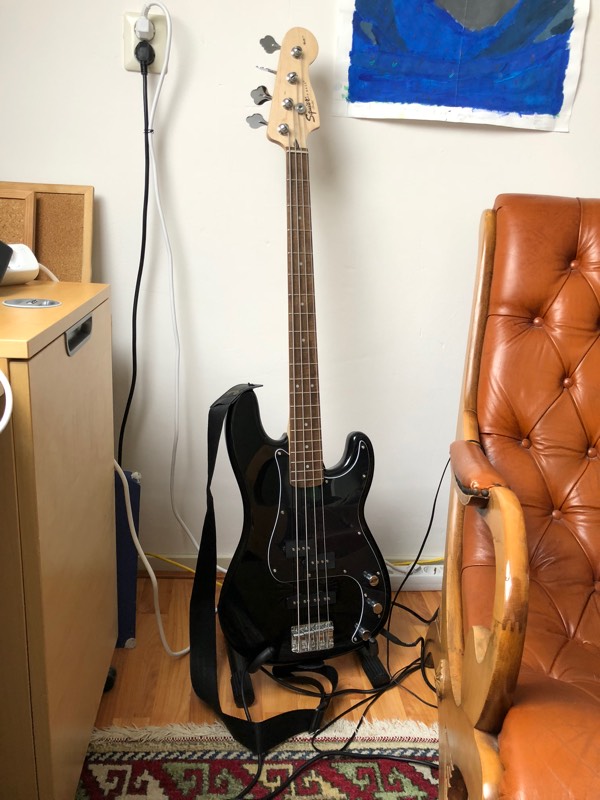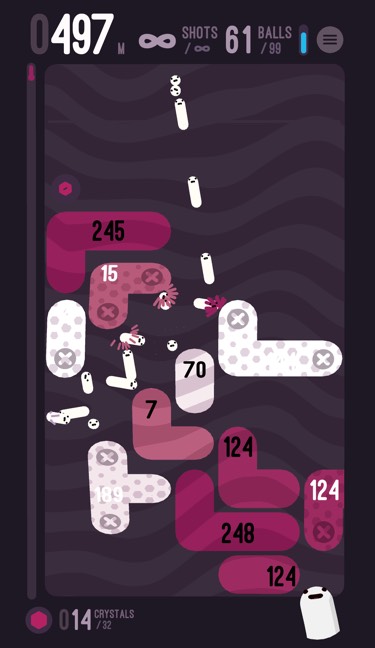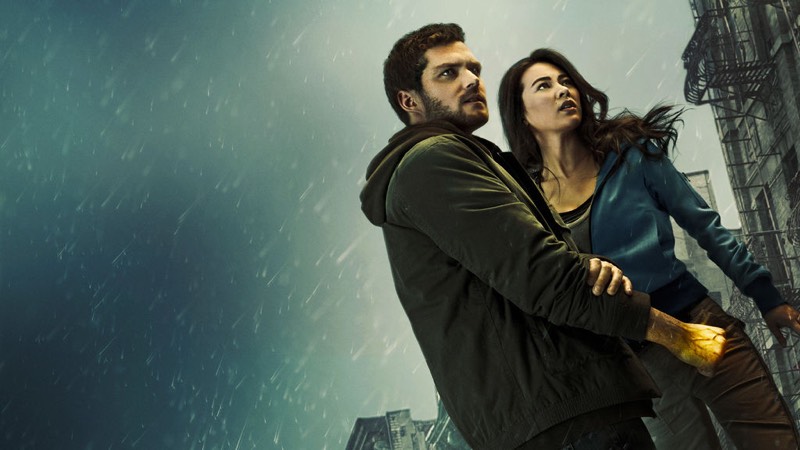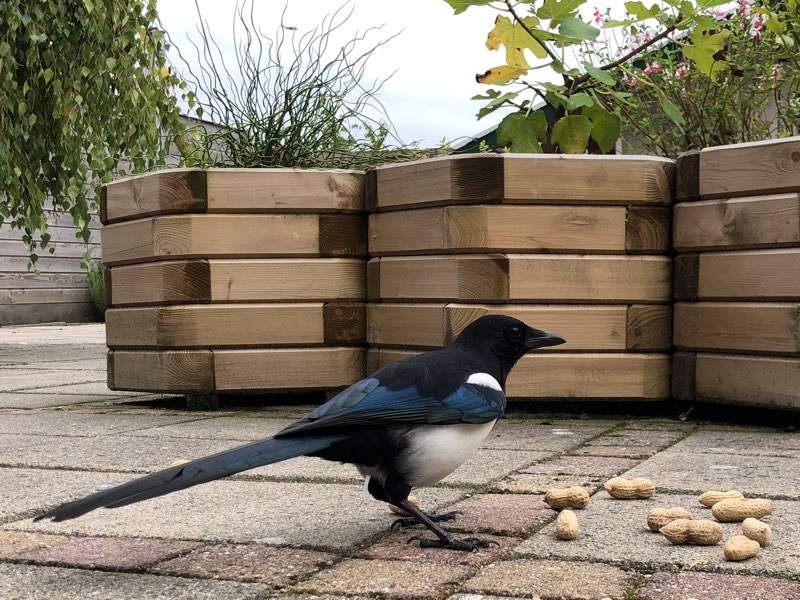
Holedown
I’ve been playing a lot of Holedown recently.
It tickles my brain in so many ways. I love particle systems, reflections, and bouncing. (It was fun to introduce Alex to snooker when we were at Archerfield in June. While everyone else was enjoying the loud party, Alex and I snuck off to the snooker room and spent a hilarious couple of hours failing to pot balls.) The paths the balls take through the blocks sometimes have the pleasing symmetry of juggling patterns, and sometimes they devolve into something that looks like chaos, but which is actually a playful visualization of a Dynamical System. (My favourite maths course at university.) And then sometimes the balls will get stuck bouncing back and forth faster and faster in an almost perfectly horizontal or vertical cascade between two parallel walls, similar to the resonating cavity of a laser.
But best of all, they’re a constant reminder of one of my favourite physical objects: the corner cube reflector:
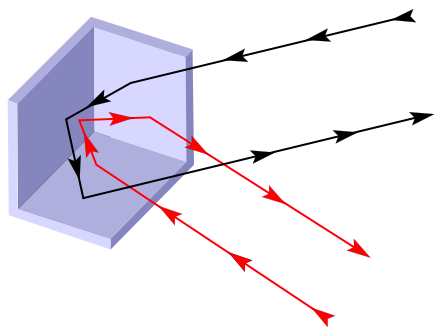
Geometrically speaking, they’re so simple and obvious, but I’ve always found their behaviour magical and charming: no matter what angle you choose, any ray you send into it is guaranteed to be reflected back exactly parallel to the original. There are arrays of corner reflectors on the moon. If you shoot a laser at them, its light will bounce straight back at you. A lot of the light is absorbed or deflected along the way, so it’s a tricky experiment, but it allows us to measure the distance between the earth and the moon down to the millimeter. Science!
Holedown is very nicely designed, with lots of subtle animations and effects, and elegant mechanics. It’s simple and addictive, but it’s also really easy to pause and walk away from for a while. As you progress, the game gets harder and more intense, but it doesn’t get faster. You can think about your moves for as long as you like, and resume whenever you want. It doesn’t use microtransactions, either. Just buy it and play. It’s adorable.
Mixed media, Tuesday 11 September 2018
TV:
⭐️Iron Fist Season 2: Huh. I didn’t like season 1, or The Defenders. But this new season is really good! (Not just “better than”.) At ten episodes, it’s shorter than other recent Marvel TV seasons on Netflix, which is to its benefit. The first couple of episodes move slowly as they re-establish the relationships, but the second half of the season is very solid. Colleen Wing and Misty Knight make a great on-screen pairing, and I was surprised by how attached I felt to Ward Meacham. He’s still an asshole, but he is trying really hard to rebuild himself after the crisis he suffered in season 1. I had my doubts about how wishy-washy the character Mary seemed in episode 1, but she came back strong. Finn Jones as Danny Rand is not insufferable any more, although I found it hard to deal with Sacha Dhawan’s Manchester accent as Davos. He has good screen presence but his voice doesn’t back it up. I don’t want to spoil anything, but at the end of episode 8 there’s a “damn, they’re really going to go there?” moment, and the last two episodes are terrific. The final moments tease what’s to come in season 3, and if they follow through on that it could be amazing.
Books:
- Ms Marvel vol. 9: Teenage Wasteland by G. Willow Wilson, Nico Leon, et al. Fun to see Kamala’s friends step up to the plate to try and keep things running while she is away.
- Velvet vol. 2: The Secret Lives of Dead Men by Ed Brubaker, Steve Epting, and Elizabeth Breitweiser. More cold war spy action and intrigue. If this were an ongoing series I’m not sure if I’d keep going, but there’s only one more volume so I’ll see how it resolves.
- The Bedlam Stacks by Natasha Pulley. I’m not normally one for steampunk, but I had hoped for something more humorous and action-filled, but it’s meandering and meditative. Not quite my thing.
- ⭐️ The Broken Earth trilogy by N.K. Jemisin (The Fifth Season, The Obelisk Gate, and The Stone Sky) Very good, but three Hugos in three years implies something quite extraordinary, and I wouldn’t put it one that level. (Take my opinions with a grain of salt right now, though.) It covers lots of themes explicitly, such as environmental destruction and prejudice towards “outsiders”, and many more (race, gender, sexuality) with a kind of subtlety and matter-of-factness that makes you wonder if this was actually written twenty years in the future where such things are taken for granted. It also covers a giant world-ending plot with great pacing and complex characters.
- Split Second by Alex Kava. Serial killer/FBI profiler thriller. No more than ¯\_(ツ)_/¯
Films:
- 💩 What’s Pacific Rim: Uprising? Not much, what’s Pacific Rim: Up with you? (Bad film, bad joke.)
- Whisky Tango Foxtrot Good
- Red Sparrow Had some good bits, but it could have hit most of the same character and action beats without the scenes of sexual degradation.
- ⭐️ Ant-Man and The Wasp Enjoyable superhero action.
Anhedonia
I’ve been going through a phase of depression. I’m familiar with the signs and symptoms, and how they manifest for me specifically. (I keep a checklist of my idiosyncrasies that don’t get covered on the standard lists. I get disproportionately sensitive to and upset by bad smells, for example.) It has happened before, and it will happen again. Until now I have always managed to deal with it by working with a therapist, focused on cognitive behavioural therapy (CBT).
This year it has been different, and worse. It kinda snuck up on me. (Or rather: it probably always sneaks up on me. This time it just came from an unfamiliar angle.) April was when one piece of realization clicked into place. I read Cate Huston’s blog entry Whose Expectations are Those, Anyway?, in which she talked about Gretchen Rubin’s Four Tendencies framework. It’s an understatement to say that I’m not a fan of reductive personality summaries, and I should withhold judgement until I’ve actually read the book. But the brief description of the “obliger” type fit me distressingly well. I was distressed.
Obligers respond to expectations from other people. They struggle meeting their own expectations.
Expectations is something I have always struggled with, specifically: living up to what I imagine other people’s expectations are for me. It’s a key point I keep coming back to in therapy, year after year. At its worst, it chases me out of jobs: over time I become so terrified that people will expect me to be knowledgeable, that I can’t open my inbox for fear of what my colleagues might ask of me. I get scared of being visible on chat, and of receiving text messages, in case a friend wants to meet up for lunch. My value system associates being a good person with helping other people, and being generous with my time and attention. But I’m not very good at setting limits to how much of myself I give away, or at telling when I’m all used up.
Looking back, I’ve been in a constant state of “used up” for quite a while. There are reasons I got into in that state. The hard emotional work of the last couple of years was necessary, and I don’t begrudge it. But I’m in my mid-40s now, and I don’t have the energy of a 20 year-old. I also didn’t (don’t) have the boundaries and emotional defences in place to deal with saying “no” to requests that are perfectly reasonable for the people asking them, but are more than I feel I can handle. I’m very good at concealing my feelings, and putting on a show of being just fine: Of course I’ll help. I may be stressed, but I’m dealing with it. I’m working hard, but staying cheerful.
Pretending to be me.
2018 was all about stumbling on, feeling ever more burned out. The negative thoughts piled up and up, and made it hard to concentrate on everyday tasks. Interruptions would upset me, and irritations would quickly grow into simmering anger. Keeping a lid on my feelings, and putting on a brave face — both in person, and on chat — kept taking more effort, until it felt like that was all I was doing. Just like when you repeat a word over and over again until it loses meaning, the smiles I faked and the cheer I portrayed became disconnected from actual emotions, and associated with mere pretense.
If I watched a movie, I could say that I enjoyed it, but what did I mean by that? Did I actually feel anything resembling pleasure? No. I was making a robotic assessment of its qualities, and translating that into what Martin would have said. When I visited Edinburgh, I would go to familiar restaurants and cafés. I would order my “favourites”, because that’s what Martin does, and wonder if this blend of sweet and umami is what “tasty” felt like. I went to concerts because Martin already had a ticket and I shouldn’t waste it, not because I wanted to go. (What does “want” feel like, anyway?) And then I stood there seething whenever someone inevitably came and stood in front of me, blocking my line of sight.
And then lying about it. Was I looking forward to this or that? Yes. (What does “looking forward” even mean? I don’t understand.) Do I love you? What does love mean? Am I feeling anything right now? I don’t want to be hurtful, but I don’t want to say something I’m not sure is true. For months, the only emotions I genuinely felt were fear, dread, disgust, and “do not want”, and these are exactly the things I don’t generally talk about. So I didn’t talk. I kept myself flat, and I shut down.
(This is probably why I found the TV show Travelers so compelling. The theme of sudden personality change, and how the people around them react to it.)
When Scott Hutchison, and Anthony Bourdain committed suicide in May and June, their deaths hit me hard. I don’t have suicidal thoughts. There are so many things out in the world to do and see and hear (even though I might not “want” to do them right now), that I’d be really annoyed if I died before I got to them. But during depressive episodes I do want things to go away, or to end. I go to bed abnormally early, just so I can stop being conscious. And I wonder what it would be like to walk away from this life, leaving everything behind. Even though I don’t act on it, realistically I have that freedom. I wonder if Scott Hutchison and Anthony Bourdain acted the way they did because they felt like they didn’t have that freedom. I’m sad for them.
Abi eventually introduced me to the term “anhedonia”:
Anhedonia is a diverse array of deficits in hedonic function, including reduced motivation or ability to experience pleasure. While earlier definitions of anhedonia emphasized the inability to experience pleasure, anhedonia is used by researchers to refer to reduced motivation, reduced anticipatory pleasure (wanting), reduced consummatory pleasure (liking), and deficits in reinforcement learning. In the DSM-V, anhedonia is a component of depressive disorders, substance related disorders, psychotic disorders, and personality disorders, where it is defined by either a reduced ability to experience pleasure, or a diminished interest in engaging in pleasurable activities. While the ICD-10 does not explicitly mention anhedonia, the depressive symptom analogous to anhedonia as described in the DSM-V is a loss of interest or pleasure.
It’s a symptom, not a condition in itself — there’s no drug or treatment for it, but it is characteristic of depression. Like when I read Cate’s article in April, this was a very “it me” moment.
In June and July I also interviewed for a couple of jobs, and one of them came through with an offer. In 2010 I left my job at Skyscanner partly because I was in a trough of depression. Even though in the long term that worked out okay, I had long told myself that I shouldn’t do that again. Leaving a job is a way to break out of a depressive cycle at work, but that’s also when my sense of self-worth is at its worst. So that’s not a great time to be interviewing. Especially when the anhedonia was making it impossible for me to really say if I genuinely wanted any of the opportunities I was pursuing.
July was a crisis time at work, a crisis time between me and Abi, and a crisis time for myself and my own identity. During one of the interviews I got asked the question: what would you do if you won the lottery and didn’t have to work any more? I found this hard to answer honestly, because the whole concept of wanting something felt utterly alien to me. I used to think that I would go back to university and study some more, but I’m not that person any more. In fact, I’m not even sure what kind of person I am now. I don’t know what I want or like in something as simple as a movie or a meal, let alone in my future career. So the answer I ultimately gave was: I would take some time to deliberately not do things, so that I could re-learn what I enjoy in life, and to rebuild myself from the ground up.
I didn’t get that job, but the question and my answer stuck with me. For the first time in a long while I had discovered something I actually wanted, even needed: some time free of obligations and expectations. Time in which I didn’t have to regularly do anything in particular, with the inevitable anhedonic realization that — no matter what it is — I don’t actively “want” to do it. (Which dovetails with the depressive spiral in which I feel trapped by having to do things I don’t want to do.) Having gone through a similar thing with Fiona last year, I’m very aware of how time plays a part in recovering from mental health problems.
We already had some holiday time scheduled over the summer, and we had consciously chosen not to go anywhere this year. But even holiday time comes with an expectation that it’s limited and precious. I needed to break out of that. I’m fortunate to work for a company that cares a lot about the mental health of its staff. I talked to my manager and tried to explain what was going on in my head. I felt there were three paths open to me: quit and move to the new job I had been offered (taking some time off before starting there), take some unpaid leave from my current job, or the Hard Brexit option of just quitting entirely and figuring things out later. My manager was extremely supportive, and immediately paved the way for me to take some sabbatical leave, right after my holiday. I’ll be staying with FanDuel when I return.
So that’s where I am now. I’m tackling the depression from three angles: therapy, medication (the first time I’ve tried that), and time off work. The term “sabbatical” brings to mind the idea of undertaking projects I wouldn’t have time for otherwise. I suppose that’s true, in the sense that the project I’m working on is me. As I’ve alluded to in recent posts, my strategy is to pay close attention to my own feelings (mindfulness) and to learn to recognize when there is a glimpse of something I enjoy, or want to do. And then pursue that feeling and see where it leads. I started out by calling it “finding my joy”, but Abi coined the phrase “chasing Tinkerbell”, which is much more evocative.
Sometimes it’s taking a walk to watch the crows and magpies defend their roosts. One day, I felt like browsing second-hand furniture shops, and I came home with a lovely comfortable chair I spotted for €35 that feels rewarding every time I sit in it. I’m starting to play the bass guitar. When I wake up in the morning, after going to the toilet I crawl back under a warm duvet for a while and savour the contrast of a cool breeze from the open window. I’m trying to resist the idea that all of this is selfish and self-indulgent, and that I should be working and should be using my time more productively. With the help of my family and friends and therapist I’m succeeding at least some of the time.
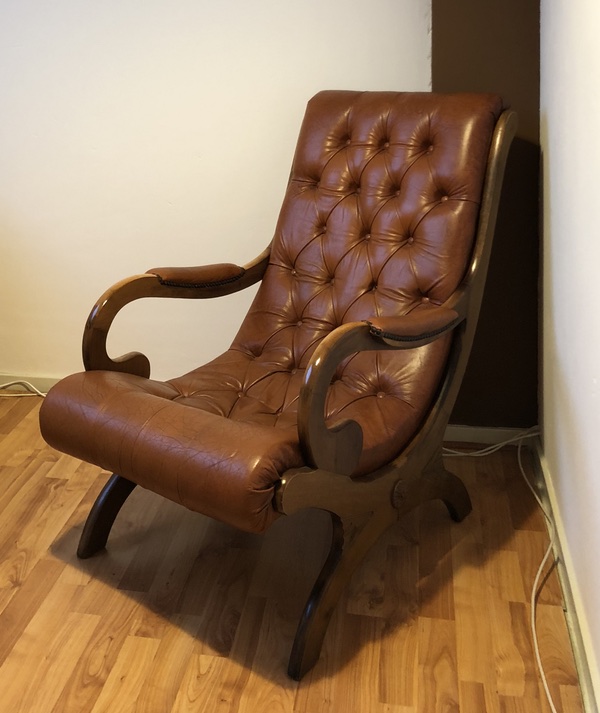
I still feel numb to most things. But I’m in a place right now where the potential for negative emotions has been reduced to the point where I can at least detect moments of positive emotion, and try to encourage them. I’ve changed the signal-to-noise ratio in my favour. I’m not “better”. But I think it’s helping.
Dutch people cycling through puddles
Wye Oak at Summerhall, Edinburgh, Tuesday 21 August 2018
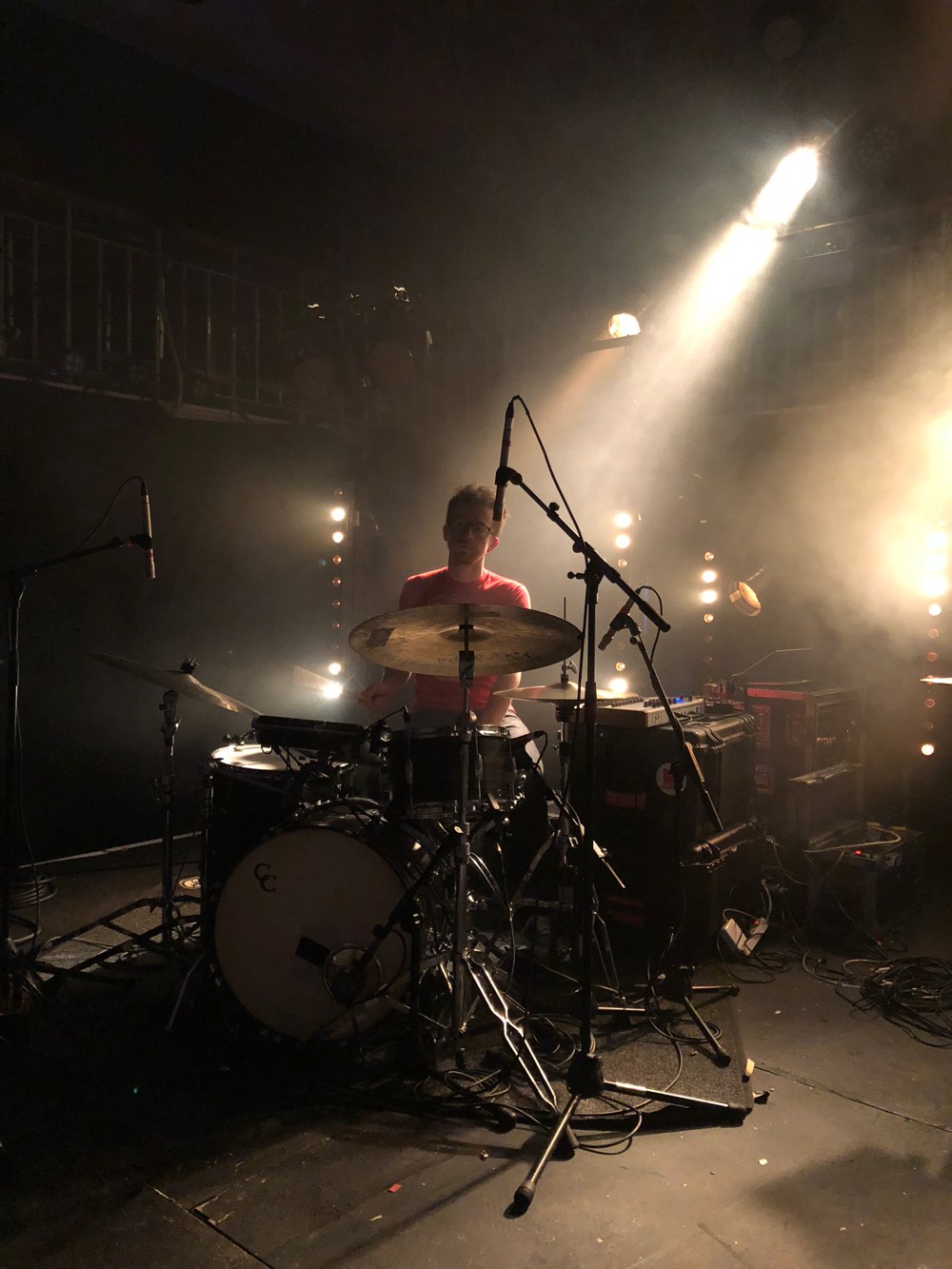
I used to play the drums. Not very well, and not very much, but I had a Pearl Rhythm Traveller kit in 2001, and a Roland TD-3 electronic kit in 2007, and I enjoyed them. But even playing on an electronic kit sends vibrations through the house, and eventually time constraints and waning interests collided, and I stopped. Rhythm has always been my thing, though, and I always figured that if I picked up a different instrument it would be the bass guitar.
Over the last month or so I’ve been trying “chase Tinkerbell”: to pay attention when my brain sends out a fleeting spark of desire or interest, and follow it where it may lead. When I was in Edinburgh in August, the spark turned out to be musical. While I was redecorating my study, I thought that a drum kit might fit nicely into the one empty corner — but once I moved all the furniture back it, it turned out the corner wasn’t empty after all. Also, the problem of drumming noise hasn’t magically been solved in the last ten years. But a bass guitar, now…
I mentioned it to my manager Keith when I had lunch with him on the Monday. He plays bass, and he had some tips on what to look for if I wanted to get started. On Tuesday I had lunch with Alan Ramsay at Frizzante (which is rapidly turning into my favourite Italian restaurant), and I walked down to Dean Bridge with him afterwards. On my way back towards Pollock Halls, Tinkerbell struck. I knew there was a music shop in the Grassmarket (Red Dog Music), and I stopped in to have a look. A very helpful sales associate talked me through the options, and pointed out the various beginner packs that were available: bass, strap, cables, and a small amp, with prices starting at a modest £250 or so.
“Hmmmmm,” my brain said. By coincidence, my flight to Edinburgh on the Sunday evening had been delayed by 3 hours and 10 minutes: just enough to trigger EU 261 compensation, so long as “extraordinary circumstances” (such as bad weather) didn’t apply. Easyjet make it very easy to make a claim for EU261 compensation, and there is no need to go through a third-party company that will act on your behalf (for a 25% cut, plus taxes). A successful claim would net me €250. So if the claim was successful, I could say that Easyjet bought me a bass guitar…
That evening I went out to the Wye Oak gig at Summerhall. (The last concert I’d been to, back in April, had also been to see them, at Tolhuistuin in Amsterdam.) Madeline Kenney played a warm-up set, then the building was evacuated because of a fire alarm, and then Wye Oak came on and played. Last time it had just been Jenn Wasner and Andy Stack, but this time they had a bass player (Will Hackney) with them as well! At most gigs, I spend a lot of time watching the drummer. This time, I found myself following Will’s hand movements on the bass, and imagining myself playing it. It was a good feeling.
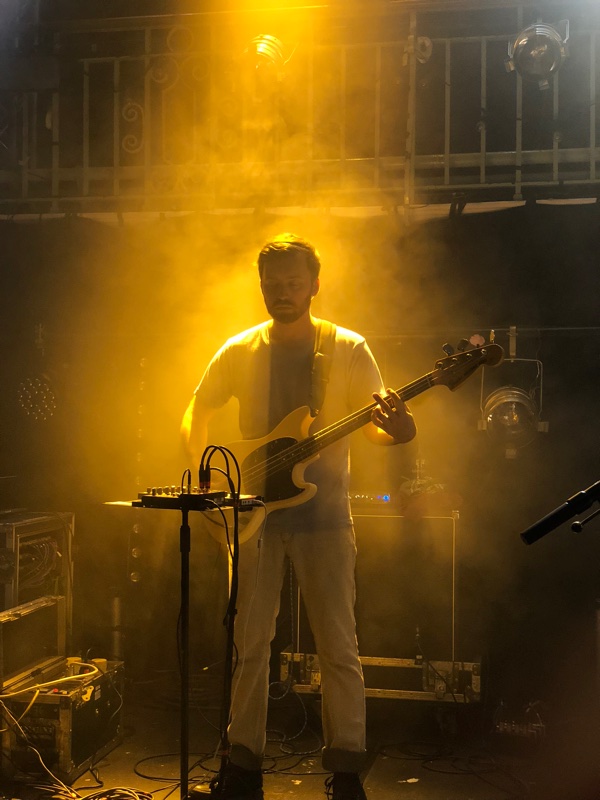
Set list:
- Tuning
- The Instrument
- Lifer
- It Was Not Natural
- Shriek
- Spiral
- Say Hello
- You of All People
- Glory
- Holy Holy
- Before
- Watching the Waiting
- The Tower
- Civilian
- The Louder I Call, The Faster It Runs (not “The Harder I call, The Faster It Comes”, as described by The List
Normally Wye Oak don’t play encores, but they made a special exception this time:
- Coyote (cover of a Joni Mitchell song)
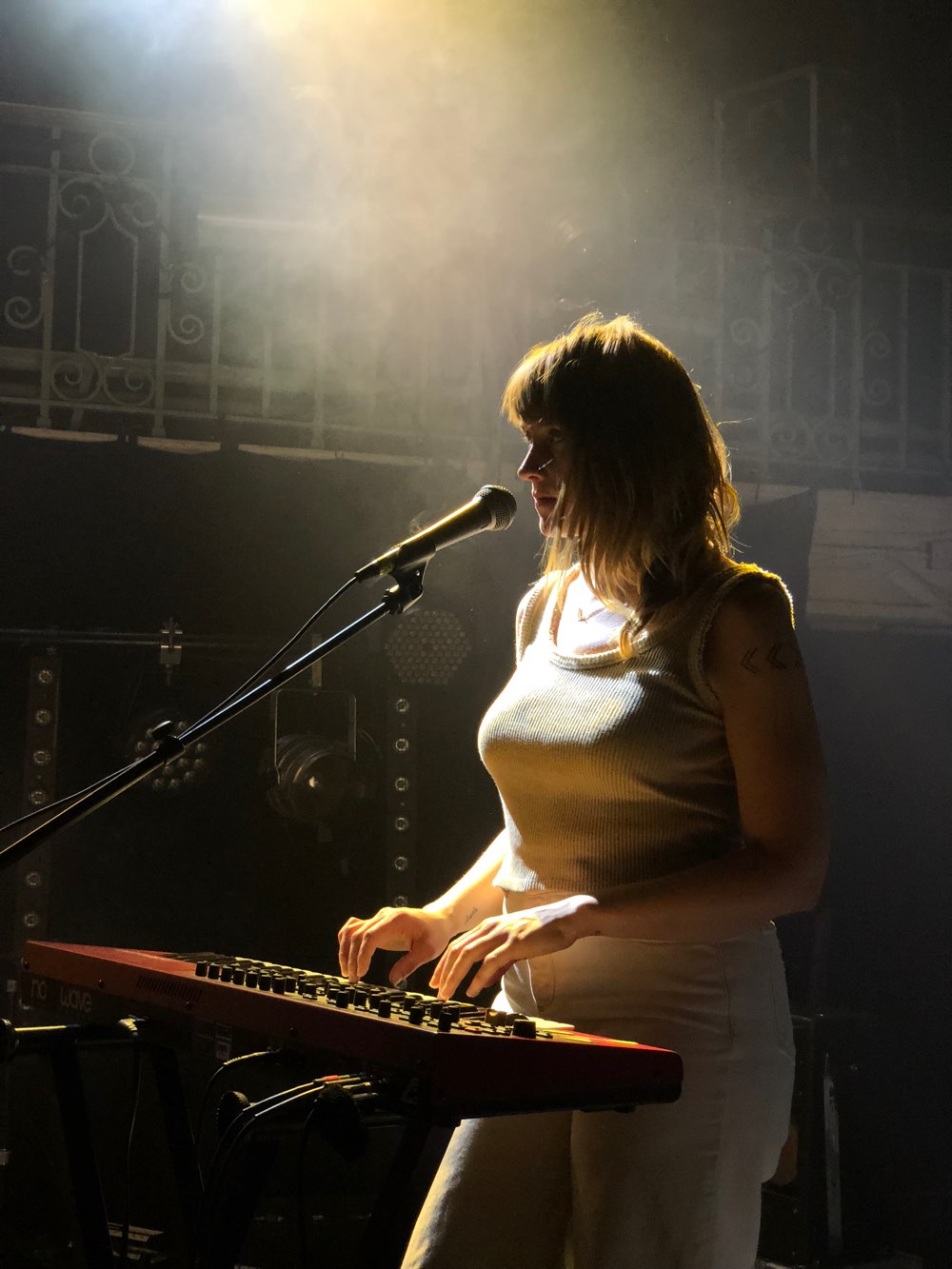
So when I got back home I spoke to Abi about it, and she was supportive of the idea. I did some online research and scouted out music shops in the area.
Reader, I bought the bass.
